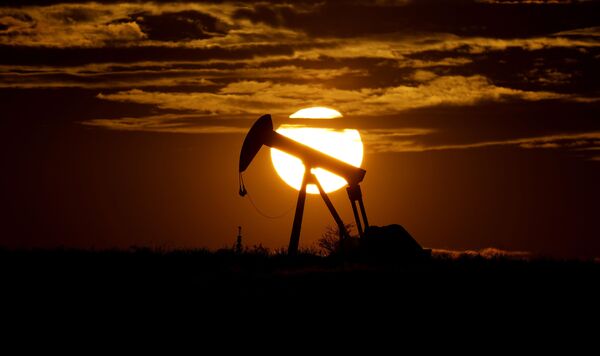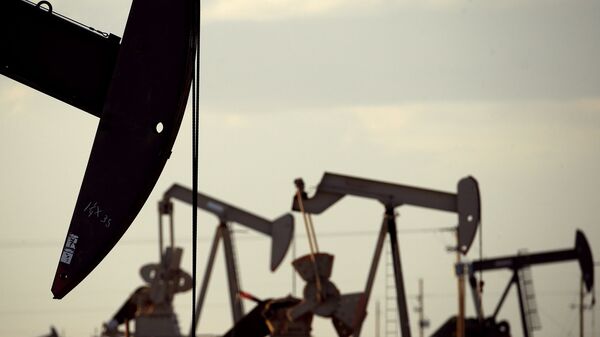President Donald Trump has repeatedly praised the US success at achieving "energy independence", which was accomplished by boosting the domestic production of shale oil and gas. But how will the shale oil industry cope with the current market crisis, while the cost of producing crude still remains significantly higher than the price for a barrel of black gold?
In light of the global drop in oil demand and subsequent fall in prices, US shale crude production will inevitably fall in 2020, Francis Perrin, a senior fellow at the French Institute for International and Strategic Affairs, believes. The decreased output could also persist through 2021 if the prices remain at their current low levels, the scholar adds.

The crisis on the energy market could have even more grim consequences for the US shale industry, according to Edward Hirs, a fellow at the University of Houston. Hirs indicates that the costs of extracting shale oil could kill many companies if the prices stay below the level of self-sustainment.
"The oil from the shale plays is among the highest cost oil in the world market. The current world price for crude is less than the average cost of producing in the shale plays. Therefore, many, but not all, producers will be losing money on their oil. These companies are at risk of failing", Hirs says.
The expert from the University of Houston stresses that unless crude prices jump above $50 per barrel for WTI, the number of players on the American shale oil market will inevitably decline in the long term.
Was There 'Energy Independence' in the First Place?
The threat of low oil prices and the possible crisis on the American shale oil market brings the future of US "energy independence" into question. This independence, praised by President Donald Trump on numerous occasions, was based on the success of shale oil companies.
The drop in oil prices and the consequences of this for American oil companies are merely a "setback on the road to oil independence", Francis Perrin believes. The pundit indicated that in 2019, US energy exports exceeded energy imports for the first time in many decades, despite being achieved mostly due to the sale of gas and refined oil products abroad amid a drop in crude imports.
"Without the COVID-19 pandemic and its negative impact on the oil market and on oil prices, the US would have become a net oil exporter in 2020 (crude and refined products). The [pandemic] will delay the US oil independence but will not significantly change the dynamics of its energy 'revolution' since the first decade of this century", Perrin forecasts.
The idea that the US achieved "energy independence" before the pandemic broke out without actually ceasing to import oil is not shared by Edward Hirs. He stresses that American oil production makes up only around 13 million barrels per day out of the 20 million the country consumes, mostly in the form of petroleum, which means the country still depends on foreign oil producers.
"US 'energy independence' has been a fiction and a complete myth. In order to provide the transportation fuels required by the nation, the US is dependent upon importing 6 to 8 million [barrels] of oil per day to match the grades of crude required by US refineries", Hirs sums up.



